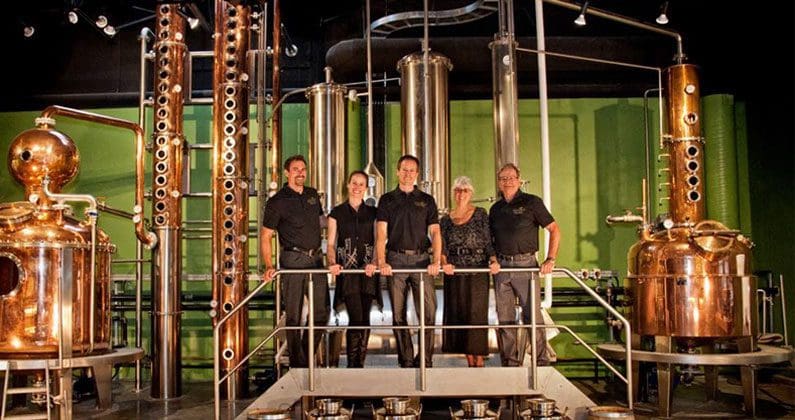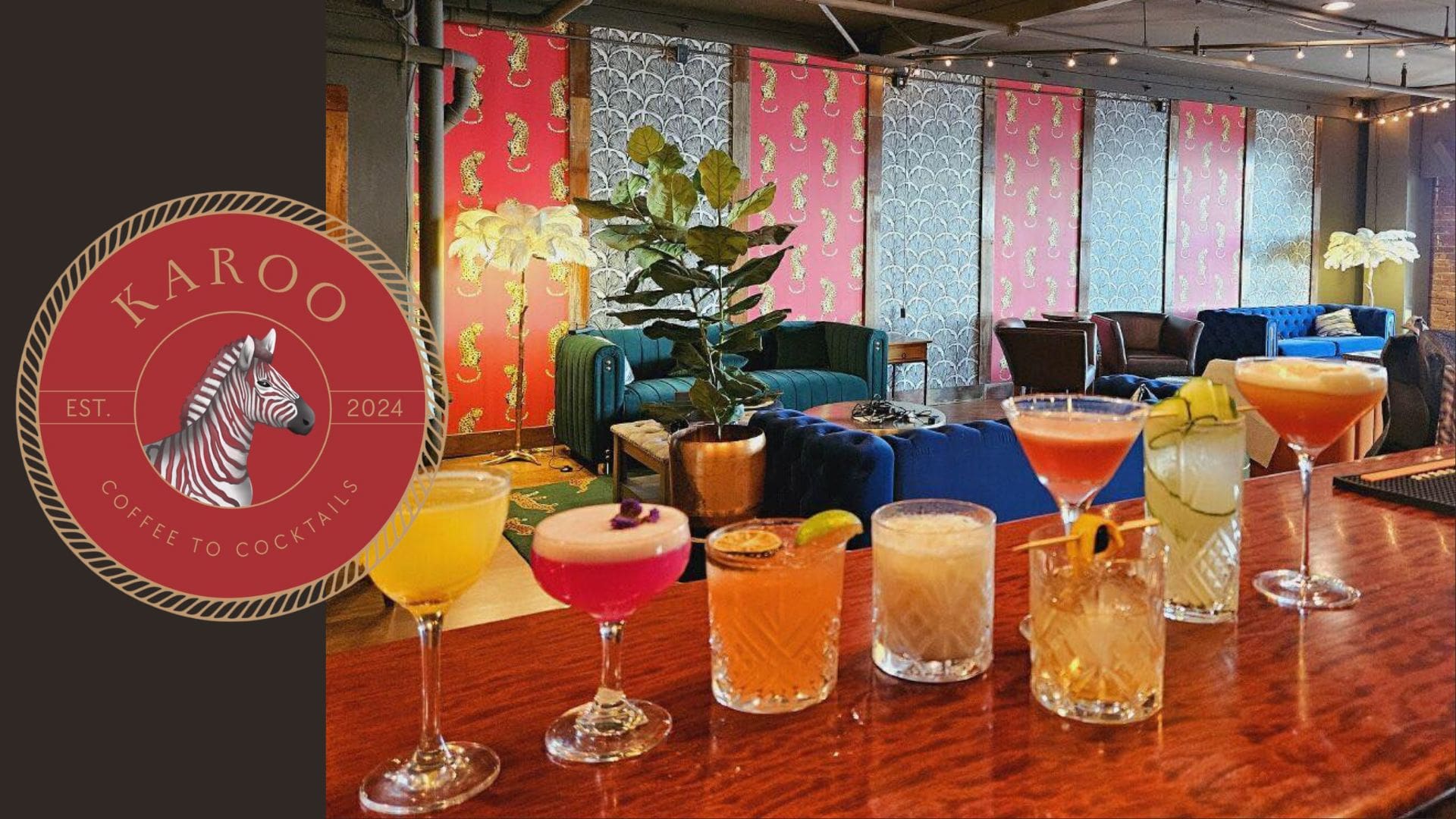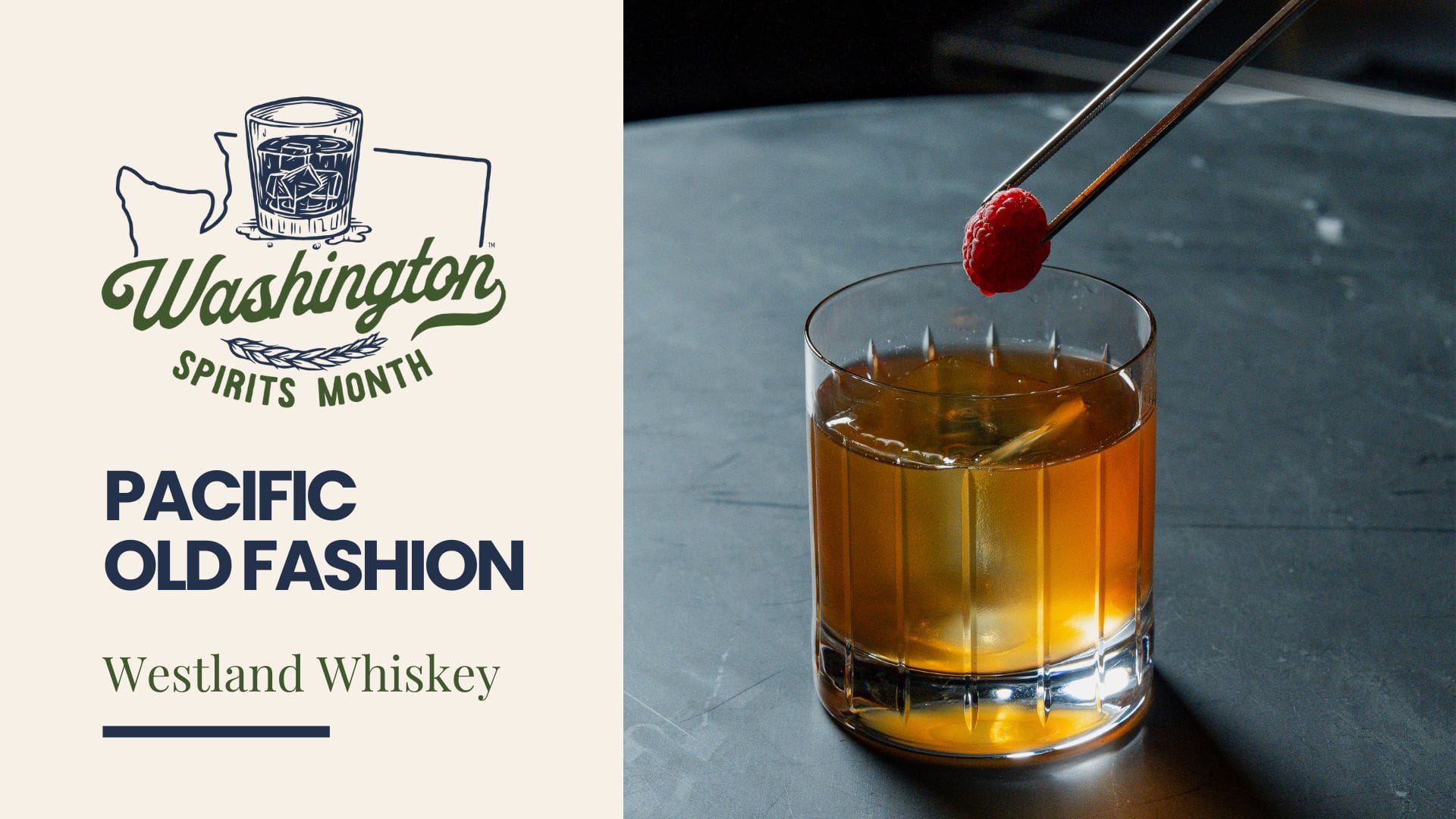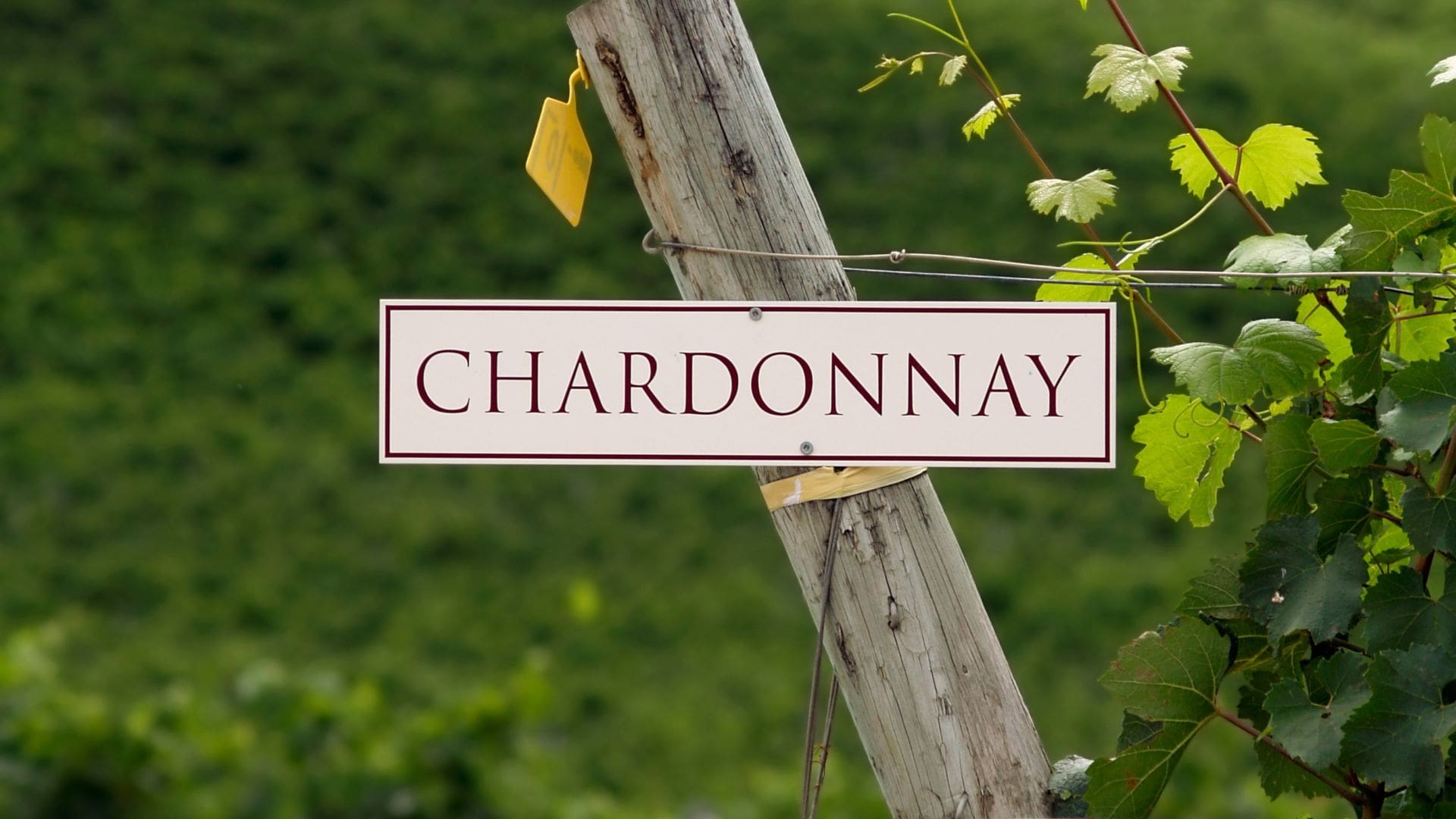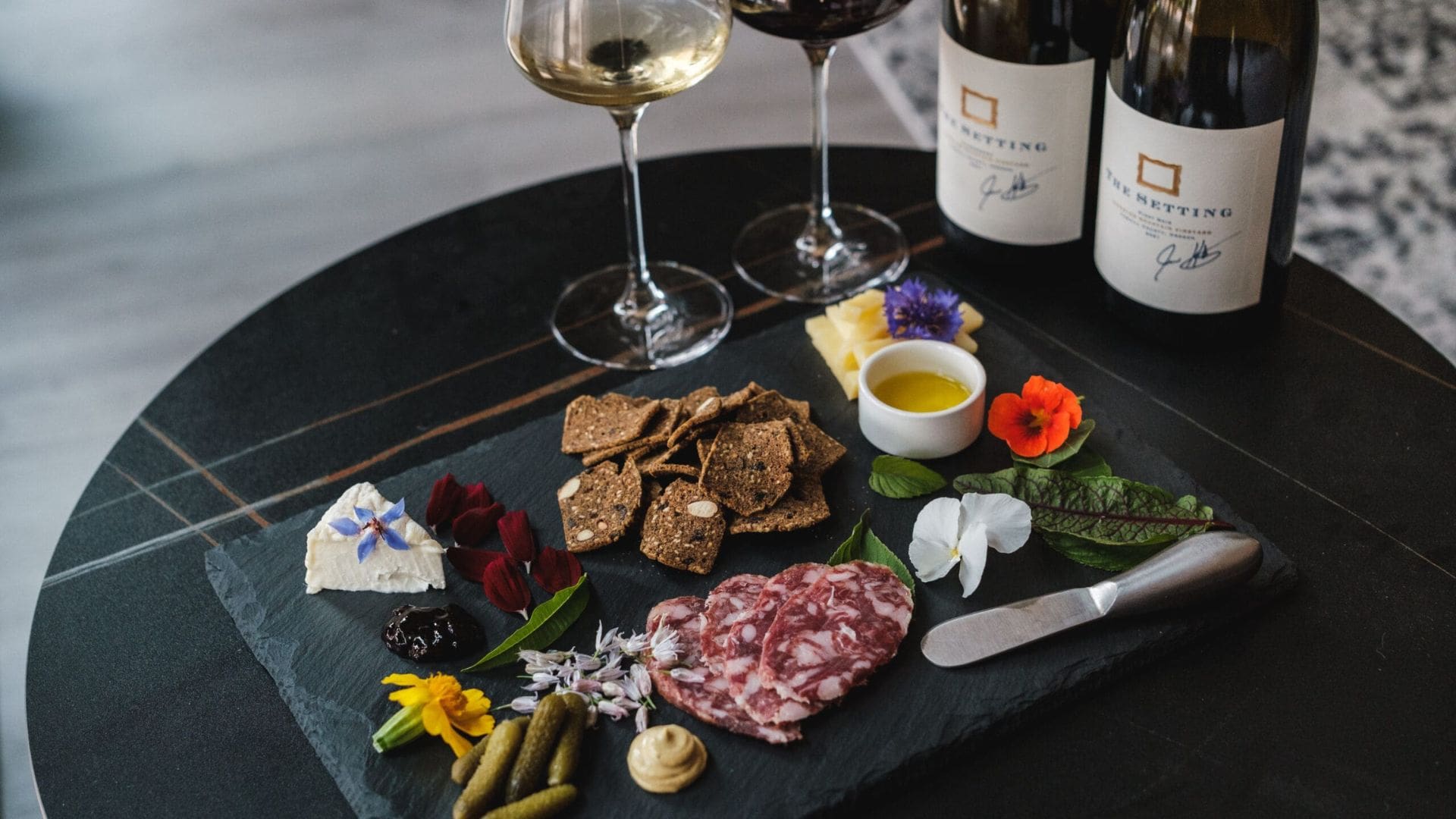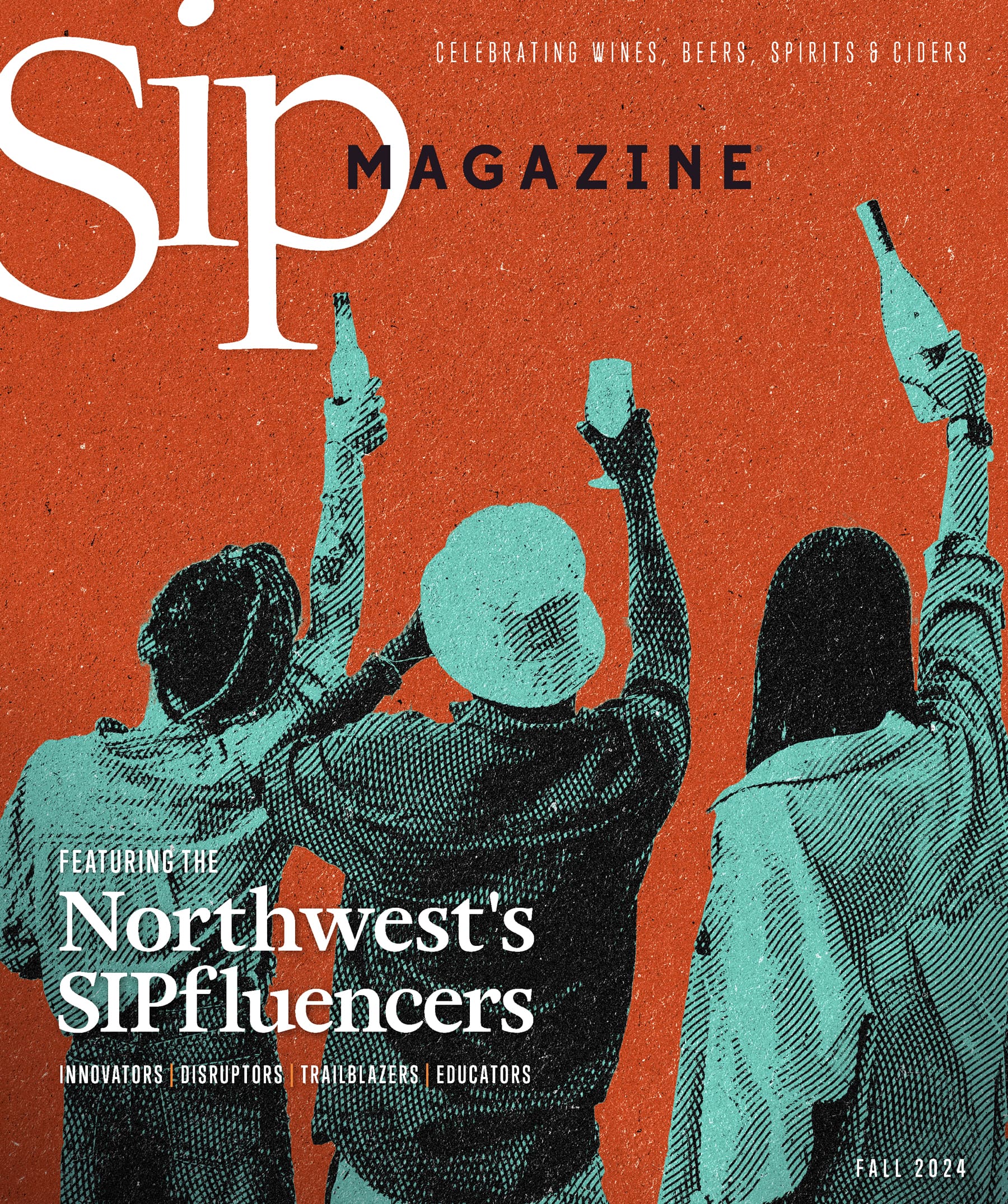The oldest distillery in Western Canada, Okanagan Spirits Craft Distillery is first and foremost a family business with all members helping in some way. Navigating the ship is CEO Tyler Dyck and his father and president Tony Dyck, either of which can usually be found with wrenches in hand puttering with the equipment, cleaning out tanks or whatever needs to be done, while brother Jeremy shoots all professional photography for the business, mother Pat and twin sister Melissa take care of all the gift packaging and run general customer experience.
The flagship location in Vernon, British Columbia, is home to the tallest copper pot still in North America. The concept for the distillery is “farm to flask,” meaning the company uses 100 percent locally grown fruits and grains to produce the internationally regarded spirits.
In addition to running the company, Tyler Dyck serves as the president of Craft Distillers Guild of British Columbia where the board advocates for craft distilleries with the provincial government and tries to create a better production reality for craft distillers in British Columbia who help support the local agricultural community. We talk with Dyck about grains, his favorite sips, decisions leading to the still and more.
1) What is your favorite grain to work with and why?
If you would ask any of our distillers or family members they would have to say barley. Malted barley is the easiest grain to work with. We are quite proud of our grain corn side of things, too, for making our corn whiskey or most people would know it as bourbon or bourbon style. The grain corn and the rye is probably the least favorite to work with although we love the end results.
2) The Okanagan Valley has such a variety of fruit and produce. How do you decide on the flavors for your liquors?
If you look at our portfolio — now of over 31 different products — we have expanded out to most of the fruits that you can imagine working with. With our background we started in eau-de-vies or fruit brandies and then fruit liquors using traditional methods just coming from the fruit itself. Then we really wanted to present terroir specificity so we ensure that all our grains are grown locally. We grow our barley, our rye and grain corn all in the Coldstream Valley so that it has a certain flavor and quality to it that really can’t be emulated anywhere else. We want our flavors to be as close to home as possible and that is why everything comes from within the area. It does present a problem in having lots and lots of different things to work with. We are always jumping from one product to the next trying to keep up and keep bottles on the self. We consider ourselves extremely lucky living where we do because it really is a bountiful place to grow fruit and grains.
3) Okanagan Spirits is the first craft distillery in Canada to make absinthe. Why did you decide to make it and what exactly is it? Is it a challenging spirit to make?
Over 10 years ago we decided to create an actual traditional absinthe with full wormwood. We really wanted to do something in a traditional style where it was a spirit just like the impressionists at the turn of the century would have been drinking… We really wanted to give people a taste and experience of that they could really wrap their mind around why it was so popular at the time. After Prohibition the taste quality and profile changed quite a bit. Most people know absinthe today as tasting like rocket fuel but it really isn’t in its pure form. Our Taboo Genuine Absinthe has a cherry base for it and it gives it a beautiful silky, smooth quality at its core and just makes it have such an easy and beautiful, sort of delicate drinking quality or mouthfeel to it.
Absinthe is difficult to make very well but I think in general it is just like making a gin. You add your botanicals and your special ingredients into it as well as other components. It is a really beautiful, black licorice-flavored elixir that really has to be savored over a great conversation. We wanted to present it in its pure form. We use traditional distillation practices and we are pre-Prohibition for all of our spirits when it was “farm to flask” production. Absinthe in its true “farm to flask” form is a gorgeous drink.
4) When you have some downtime, what is your favorite libation to enjoy? Any favorite tunes you like to sip to?
It would have to be a Manhattan or Old Fashioned — I kind of vacillate between the two. I love kicking back and listening to old classics like Nina Simone or Ella Fitzgerald. I just don’t think there is anything better than some of that old jazz and blues with a little class.

